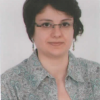The Sub-group Social Recompositions and Territories works on the study of the processes of social recomposition and structuring of inequalities according to a logic of territorial composition, with a focus on the northern region of Portugal and based on theoretical and methodological frameworks of the sociology of classes and stratification, dovetailed with urban sociology, sociology of education, sociology of ethnicities, sociology of religions and political sociology.
Within the broader framework of the study of social recompositions, culture and territory, the sub-group is also characterised by having a consolidated multidisciplinary and cross-cutting work dynamics in the field of the study of relations between social recompositions, processes of symbolisation and discursive interaction and cultural practices.
The sub-group’s activity is organised around four strategic objectives, the first of which aims to deepen the knowledge of several aspects of the transformation of the Portuguese development model, in particular those relating to organisational and technological development, to (de)industrialisation, and to the changes in traditional sectors of activity.
In furtherance of a set of research work that has sought to identify the impact of the economic and social crisis in the North Region, the second objective aims to deepen the sociological study of the processes mentioned in the previous objective, with a view to providing knowledge about social recompositions in differentiated spaces, addressing recent economic, social and cultural transformations imposed precisely by the crisis, and exploring the aspects of the organisation and action carried out by the State and public policies.
A third objective focuses on the study of literacy and discourse interactions in their relation with social recomposition processes. Research hereon focuses on digital reading and literacy, linguistic practices in diversified social contexts, on the production, elaboration and dissemination of discourses and discourse strategies and on the articulation between processes of symbolisation and discourse elaboration and political-ideological mobilisation.
The fourth objective has to do with the symbolic, mainly religious, and aims to continue the study of the specificity of Portuguese Catholicism and, on the other hand, of the reconfiguration of the religious landscape in Portugal, a transformation that intersects with geographical and social mobility phenomena and with the emergence of market rationales. This objective is also established through the study of the articulations of the religious phenomenon with the State and public domain.
Coordination: João Queirós.


























